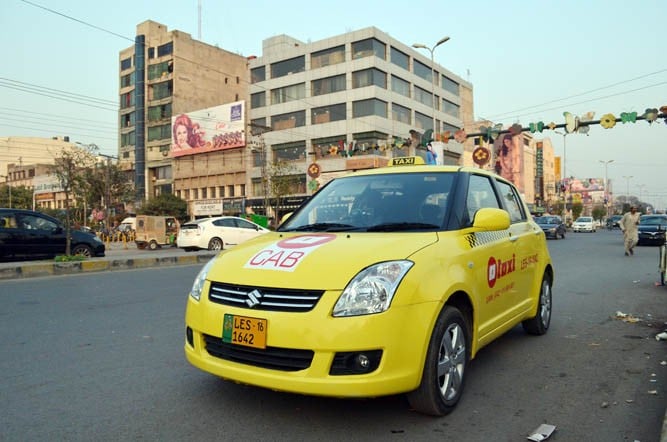
The recently launched yellow cab project does not compare to rickshaw, common Lahori’s favourite ride; and despite competition from Uber and similar services in the future

The third iteration of the yellow cab scheme was recently launched in Lahore amidst much fanfare and pomp. As the mindful among you may remember, the first ‘yellow cab scheme’ was introduced by the PML-N back in the 1990s when 65,000 vehicles, including 35,000 taxis, were provided to shortlisted individuals.
The first scheme was a monumental bust and plagued from the very onset by allegations of large-scale corruption, nepotism and mismanagement which led to a wave of defaults that almost crippled the banking sector. In 2012, the government decided to have another crack at it by allocating Rs4.5 billion to the project for 20,000 taxis and pickup loaders but the project whittled away into obscurity.
However, this time around, the initial signs are positive and the venture shares no similarities with previous projects other than the colour of the vehicles. For starters, rather than being a government-backed initiative, the taxi service, which has been named A-Taxi, is a commercial venture of Albayrak, the Turkish company that had a role in the metro projects and is also currently handling the Lahore Solid Waste Management Project.
The setup is in line with international standards and professional training has been provided to the drivers and support staff. Right now the company is testing the waters aimed at judging the feasibility of the project before moving forward and has launched 60 taxis on the road with 40 more on the way.
The taxi service charges Rs120 for the first three kilometres of travel and Rs35 for every subsequent kilometre. The taxis also come equipped with an onboard Global Positioning System (GPS) to ensure the security of the commuters and help them to reach their destination using the shortest possible route.
A smart phone application is also on its way to which will make the accessibility of booking taxis all the more easier.
With such specifications, the target audience is seemingly the urban middle class who will be willing to pay a premium for a better service when compared with the local rickshaw. So far, the project is doing well and has generated a lot of buzz. Naeema Saeed, Communications Manager at Albayrak, affirms that the "public response [to A-Taxi service] has been very forthcoming.
"We are striving to provide better modes of transportation," she tells TNS.
The project, although in its infancy, looks promising and will add a much needed alternative means of public transportation in the city. It will face stiff challenge in the form of the rickshaw, which has dominated the scene for a while now and Uber with its extremely competitive rate of Rs13.7 per km.
However, with its emphasis on quality and security, there is a segment of the market that can be captured by A-Taxi. In the larger scheme of things, the project also bodes well for Pakistan’s relationship with Turkey and with the global economy in flux a betterment of relations with the rest of the world.